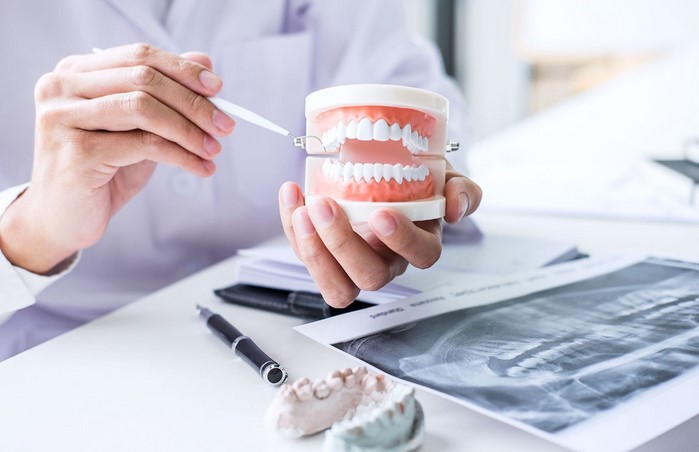Integrative dentistry is a holistic approach to oral health that merges traditional dental practices with complementary and alternative therapies. This innovative approach considers not only the teeth and gums but also the interconnectedness of oral health with the overall well-being of the individual. By combining the best of both conventional and alternative techniques, integrative dentistry aims to provide comprehensive care that promotes optimal oral health and contributes to the overall harmony of the body.

Dental care has long been recognized as a crucial aspect of overall health and well-being. However, traditional dental practices often focus solely on treating oral issues in isolation, without considering their potential connections to the rest of the body. In recent years, a paradigm shift has occurred in the field of dentistry, leading to the emergence of integrative dentistry – an approach that considers the interconnectedness of oral health with the entire body. This holistic approach offers a range of benefits that go beyond just treating teeth and gums, ultimately contributing to improved overall health.
Understanding Integrative Dentistry:
Integrative dentistry, also referred to as holistic or biological dentistry, recognizes that the health of the mouth is closely linked to the health of the entire body. This perspective contrasts with the traditional approach, which often views oral health as separate from systemic health. Integrative dentistry takes into account the impact of dental treatments, materials, and procedures on the body as a whole.
1. Personalized and Preventive Care:
One of the key advantages of integrative dentistry is its emphasis on personalized and preventive care. Instead of solely addressing dental issues after they arise, integrative dentists focus on early detection and prevention. They work closely with patients to develop individualized treatment plans that consider their medical history, lifestyle, and specific needs. This proactive approach can help prevent the development of more serious oral and systemic health problems in the long run.
2. Minimizing Toxic Exposure:
Integrative dentists are often cautious about the materials used in dental procedures. Traditional dentistry has employed various materials, such as mercury-containing amalgam fillings, which can release toxins into the body over time. Integrative dentistry aims to use biocompatible materials that are less likely to cause adverse reactions or contribute to toxic exposure. This consideration for the potential impact of dental materials on overall health sets integrative dentistry apart and aligns with the holistic approach.
3. Recognizing the Oral-Systemic Connection:
Research has increasingly shown a strong connection between oral health and systemic health conditions, such as cardiovascular disease, diabetes, and even pregnancy complications. Integrative dentistry recognizes and addresses these connections. For instance, gum disease has been linked to inflammation in the body, which can contribute to the development of chronic diseases. By treating oral infections and inflammation, integrative dentists contribute to reducing the risk of broader health issues.
4. Focus on Functional Dentistry:
Functional dentistry is a core concept within integrative dentistry. It involves assessing how the teeth, jaw, and muscles work together to support optimal oral and overall health. Functional dentists consider the alignment of the bite, which can affect issues ranging from headaches to digestion. By addressing functional issues, integrative dentists not only relieve discomfort but also promote improved systemic well-being.
5. Collaboration with Other Healthcare Providers:
Integrative dentists recognize that oral health is just one piece of the health puzzle. To provide comprehensive care, they often collaborate with other healthcare providers, such as medical doctors, nutritionists, and chiropractors. This collaborative approach ensures that all aspects of a patient’s health are considered and integrated, leading to more effective treatment plans and better overall outcomes.
6. Patient Education and Empowerment:
Another noteworthy aspect of integrative dentistry is its focus on patient education and empowerment. Dentists in this field take the time to educate patients about the connections between oral health and systemic health. By understanding these relationships, patients are better equipped to make informed decisions about their dental care and overall well-being. This knowledge empowers individuals to take an active role in their health journey.
7. Stress Reduction and Dental Anxiety:
Integrative dentistry also takes into account the emotional and psychological well-being of patients. Dental anxiety is a common issue that can deter individuals from seeking necessary care. Integrative dentists often create a calming and supportive environment, using techniques such as relaxation exercises and mindfulness to reduce stress and anxiety during dental visits. This approach promotes a more positive and holistic experience for patients.
8. Long-Term Health and Cost Savings:
Investing in integrative dentistry can lead to long-term health benefits and potential cost savings. By preventing oral health issues and addressing them early, patients are less likely to require extensive and costly treatments down the line. Additionally, the focus on overall health can lead to a better quality of life and reduced healthcare expenses associated with systemic conditions.
In Conclusion:
Integrative dentistry offers a holistic approach to dental care that recognizes the intricate connections between oral health and overall well-being. By providing personalized, preventive, and collaborative care, integrative dentists contribute to improved systemic health and a higher quality of life for their patients. Through the careful selection of materials, consideration of the oral-systemic connection, and attention to functional dentistry, this approach sets a new standard for comprehensive dental care. As awareness grows about the benefits of integrative dentistry, more individuals are likely to embrace this holistic approach to achieve optimal oral and overall health.